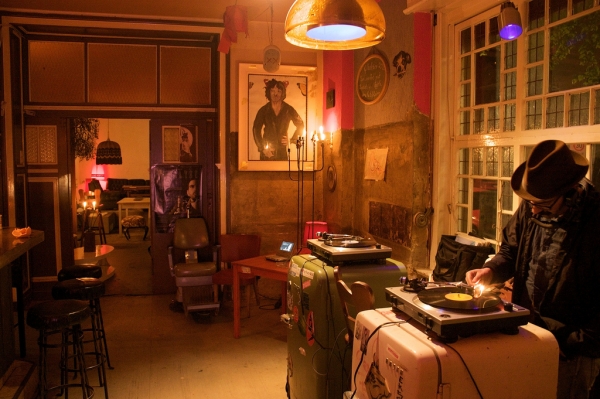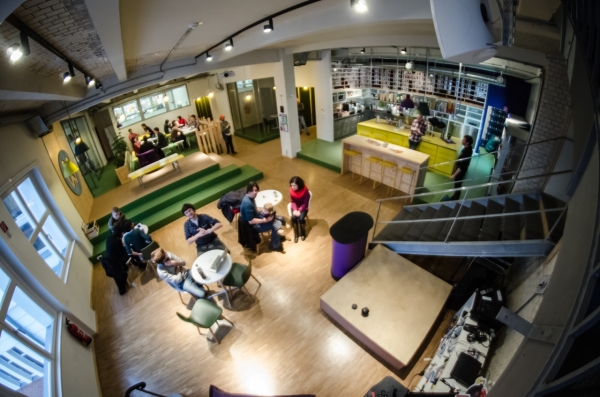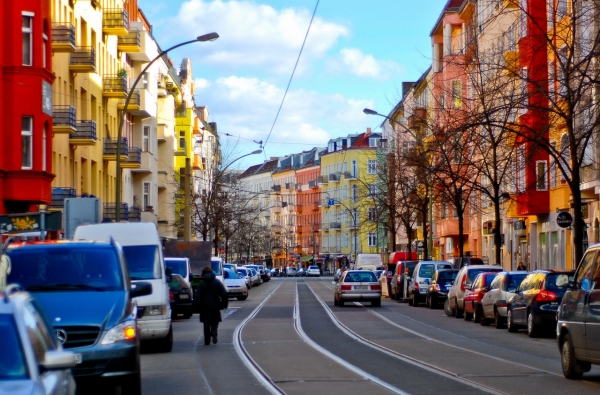Nu pierdeți cele mai bune locuri de muncă!
Abonează-te și săptămânal iți vom trimite un email cu ultimele locuri de muncă disponibile. Introdu adresa ta de email mai jos
Let me guess, you stopped over in Berlin for a concert and you don’t want to leave? You already picked out your favorite cafés and where to spend Friday nights? For some strange reason, this graffiti-ridden town of concrete and techno beats has captured your heart. I don’t blame you. It has my heart too, along with millions of other foreigners.
Berlin is possibly the friendliest European city for foreign workers, due to its relaxed immigration policies, diverse opportunities and cheap living costs. Now more than ever, multinational companies and small startups are choosing Berlin as their base, taking up prime real estate in what they call ‘The Silicon Valley of Europe”.
What this means for us is – plenty of internship opportunities to be found! However, you should always tread carefully in Berlin, as the city has a notorious intern culture. Stories of underpaid and overworked international students are rampant on social media. However, these poor kids most likely did not do enough research prior to being hired. I’ll give you some direction so you can safely intern abroad!
Where can I find internships?
In Berlin, there are two types of workplaces offering internships to non-Germans – multinational corporations and startups.
Interning with a multinational corporation is a good option if you are looking to develop a technical skill (i.e. SAP or bill processing), as job descriptions can be very specific. These companies offer attractive remuneration packages and adequate HR support, making them safe employers. Their internships are advertised on LinkedIn, Career Builder and Indeed. This process is straightforward and I will not go into details in this article.
Startups on the other hand are a gray area. The Google-like offices, casual dress codes and fast-evolving businesses are all enticing factors for young foreigners. However, picking the right startup is hard, getting a good experience is harder, but once you do, it can be the most fruitful job you have ever had.
How do I spot a good startup?
Start browsing Berlin Startup Jobs, Venture Village and The Local, these sites combined cover majority of the hiring in the startup community. Using these resources as a reference point, make a list of companies that you would like to work with. Be mindful that some startups are questionable, so double-check their credibility using the following checklist:
Has the company been around for more than two years?
Are they venture-backed by investors?
What is the future outlook for the company? Have they shown growth in the past year?
Are there senior talents in the team who can mentor you? You can get an idea of their staff by looking at LinkedIn.
If they pass the test, put together a killer application!
How do I get an interview?
This differs depending on whether or not you are in a technical role. If you have a software development or design profile, you should have no problem getting interviews based on your CV alone.
For everyone else, the competition is tough and you have to be very active in the job search. The consensus is for non-technical jobs in a decent startup, only apply if someone can refer you to the job poster. This means you have to accomplish one task dreaded by so many – networking.
Luckily, the startup community in Berlin is very friendly, as it is mostly made up of out-of-towners who were once in your shoes. Attend some of the events on Startup Digest and Meetup, chances are you will meet someone who is willing to help out. As well, startups regularly have office parties and everyone is welcome, which you can find out about through word of mouth.
Aside from attending events, try reaching out to people on LinkedIn whose profiles you admire. You can get some great insights from them on where to get started.
After you have had live interactions with the startups you are following, you can send them a ‘warm’ application.
To make sure your resume/CV satisfy local HR preferences, include a ‘personal information’ section that has your birth date, nationality, languages and a picture. If you are a non-EU citizen but hold a working holiday visa, do list that.
Can I survive on an intern’s salary?
Once you get the job, you have to focus on paying the bills. Unfortunately, you cannot live on an intern’s salary alone (hence the frugal intern abroad). An internship pays anywhere from €400-600 a month, it costs at least €700 to live comfortably in Berlin. Here is a breakdown:
|
Average Cost Per Month in Berlin |
|
|
Rent |
€300 for a flat-share/WG |
|
Food |
€200 |
|
Entertainment |
€200 |
|
Transportation |
€78 for a monthly BVG pass, or a €80 to buy a second-hand bike |
|
Total Costs |
€700+ |
|
Intern Salary |
€500 |
|
Deficit |
-€200+ |
As a result of this, many need to take up second jobs, either in teaching, freelancing or hourly wage work. Although this might not seem appealing at first, but it is good to spread yourself out across different employers, as you will have more opportunities for a full time jobs in the future.
How do I get a full-time offer after my internship?
There is no way you can guarantee this, as it is recently surveyed that only 1 in 5 interns in Berlin are offered a position post-internship. However, here are some things you can do to make you a competitive candidate for full-time employment.
- 1) Be your own HR. Startups lack resources and they cannot be accountable for everyone’s development. So set clear expectations with your manager and vice versa, make sure your performance reviews are scheduled and take initiative in exploring different career paths.
- 2) Don’t be loyal. Attend as many community events as possible to network, so if your current employer cannot hire you, someone else will.
- 3) Learn German. Try to achieve B1 in German by the end of your internship, so you have another advantage over the other job seekers.
Although there are many hurdles in interning in Berlin, the city makes it all worth it.
Just keep the following things in mind, be selective in choosing an employer, make extra money so you don’t starve and take charge of your career. You will have the time of your life!
Sign in to publish a comment





Be the first to comment on this post.